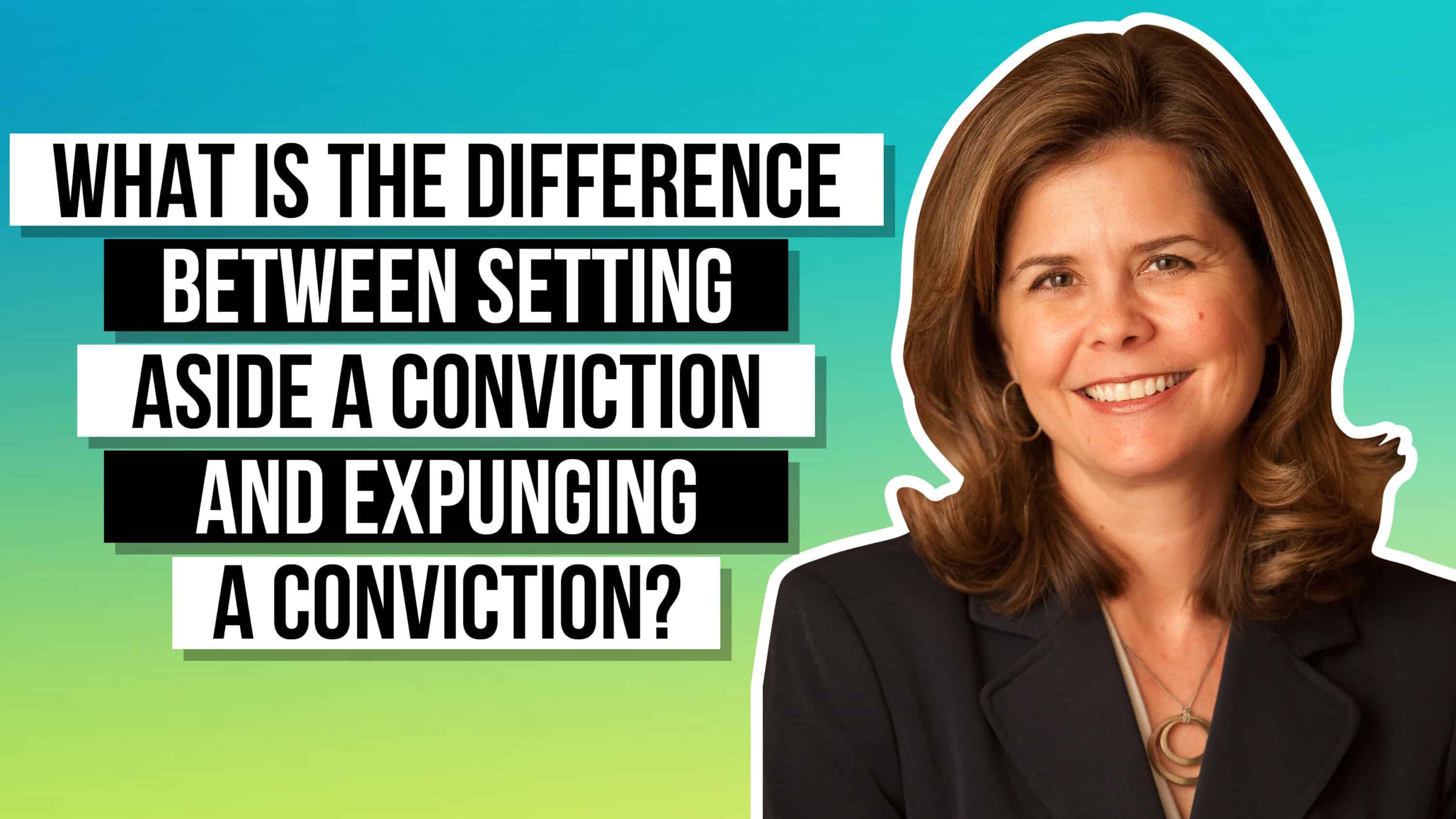
What is the Difference Between Setting Aside a Conviction and Expunging a Conviction?
A person who has been convicted of a felony and completed their sentence can file certain types of relief in court that can help them move forward with their lives and reinstate themselves back to society. Among these is an expungement of their criminal record and a motion to set aside a conviction.
Often, people mistake these two as one and the same. But they’re each a unique relief that has a different effect on the person seeking it.
What is an Expungement of Record?
On January 1, 2023, Arizona implemented a statute that allows a person convicted of a crime to seal their criminal record from public view. This is referred to as expunging their criminal conviction.
An expungement of records can be beneficial to a convict, allowing them to apply for jobs, build their credibility, get approved for personal or financial support, etc., without their criminal history getting in the way.
That’s the limit to what an expungement can do. It cannot reinstate a convict’s civil rights – for that, they must file a motion to set aside a conviction.
Criteria for Expungement of Record
If a person petitions a court to expunge their conviction, they need to meet certain criteria. The most important thing to know is that there is a time period that they need to complete before they can apply for expungement:
- Class two and class three felonies – 10 years after the completion of jail time or probation
- Class four, class five, and class six felonies – 5 years after the completion of jail time or probation
- Class one misdemeanor – 3 years after the completion of jail time or probation
Further, if a person wants several items on their criminal record expunged, they need to file separate petitions for each case.
What is a Motion to Set Aside a Conviction?
An expungement is different from a motion to set aside a conviction. The latter is an application that the convict can submit to the court in order to reinstate their civil rights, including:
- The right to vote
- The right to serve jury duty
- The right to run for public office
- The right to possess a firearm
A new Arizona law automatically restores these rights to first-time felony offenders after they have completed their sentence. However, those with subsequent offenses need to file a motion to set aside a conviction to reinstate these civil rights.
Criteria for a Motion to Set Aside a Conviction
Unlike in expungement, there is no certain time period to wait before being allowed to file a motion to set aside a conviction. However, it’s worth noting that a judge will not grant it unless there has been sufficient time to tell that the convict has completely changed their life and warrant the restoration of their civil rights.
There are also certain offenses that cannot be set aside. These include serious convictions, such as sex offenses, and other dangerous offenses like murder and arson.
Which One Should a Person File?
Oftentimes, a person should be submitting both a petition for expungement and a motion to set aside a conviction so that they can reap the benefits of both reliefs.
There are a lot of intricacies that go into these processes, so anyone interested in pursuing them should first speak to a competent defense attorney. A lawyer can help them understand their options and guide them through the process.
Latest Posts
What Should I Do If I’m Incarcerated and Owe Child Support?
A parent with a child support order must pay the amount decreed. If they cannot, for example, if they are in jail, the obligation to pay child support does...
Can I Get My Civil Rights Restored in Arizona If I am a First-Time Felony Offender?
Arizona laws are stricter than most states when it comes to the civil rights of a felony offender. When someone is convicted of a felony, they lose their...

